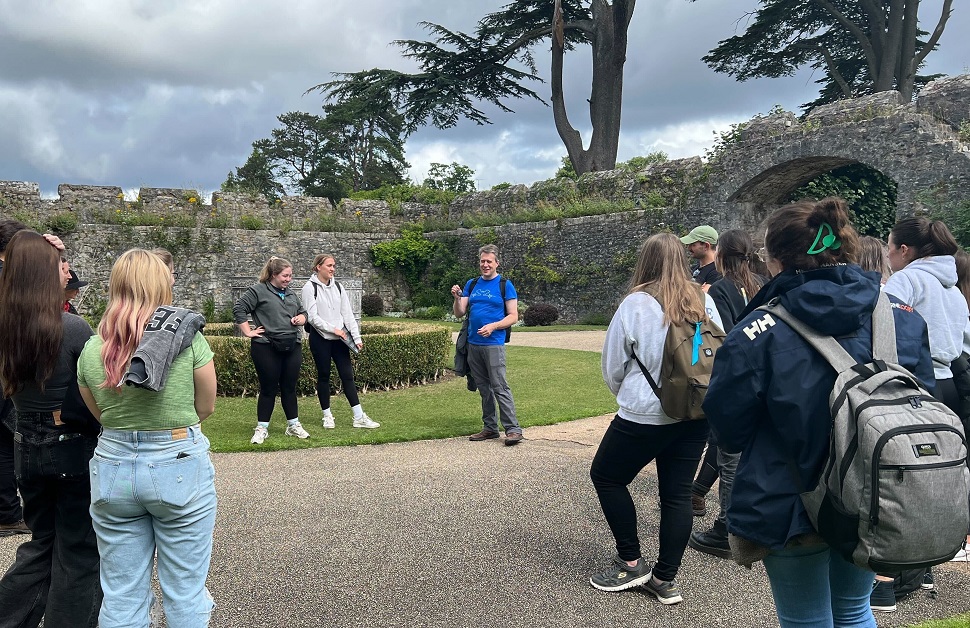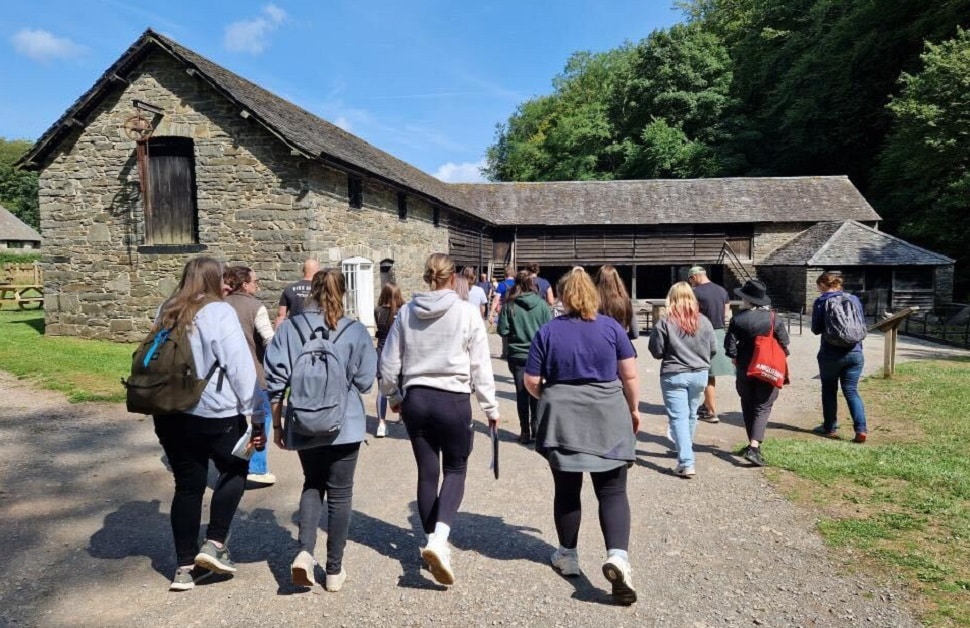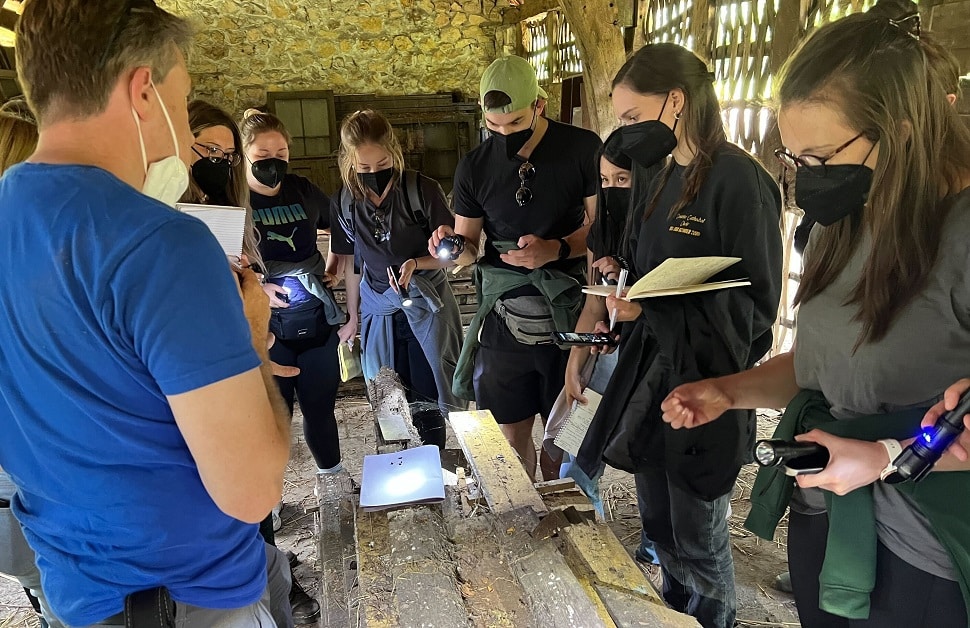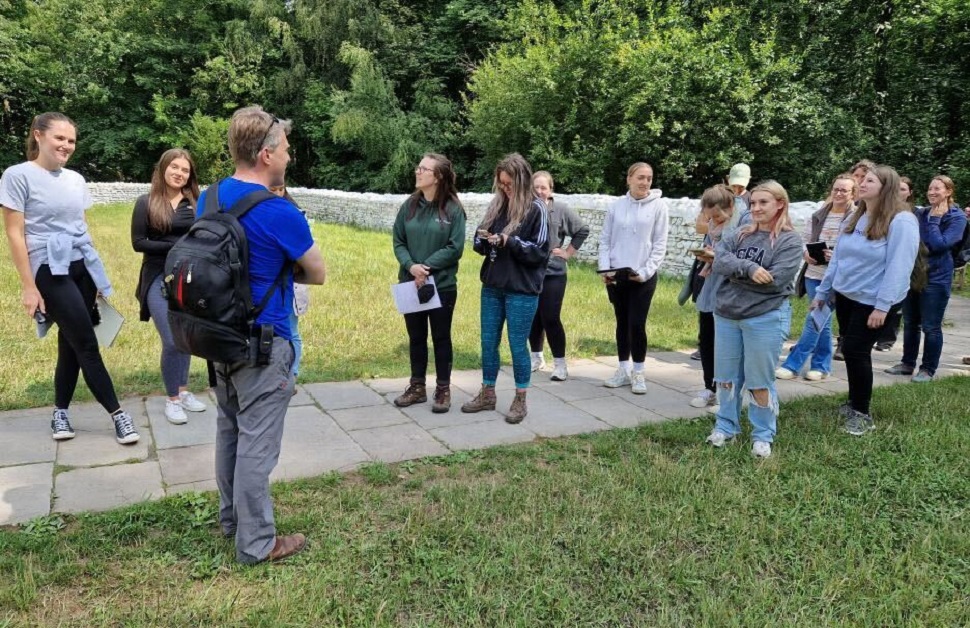
July saw a number of Arbtech‘s team of ecological consultants attend a training course led by bat expert Richard Crompton. It followed universally glowing feedback from all surveyors that took part in another training course fronted by Crompton two months prior. While the course in May focused on bat netting and handling, however, the most recent course offered useful, applicable and insightful alternative methods and techniques for bat surveying.
Everyone at Arbtech is entitled to numerous generous company benefits, including money off gym memberships, countless staff socials throughout the year, subscriptions to a selection of streaming services, and a unique bonus scheme that enables colleagues to gift each other with items from predetermined wishlists. Another incentive at Arbtech is the opportunity to utilise an unlimited budget for continuing professional development (CPD).
With the option of an unlimited CPD budget, all Arbtechers are able to undergo courses, gain qualifications and attend events, all with the intention of enhancing their professional abilities. Not only does it give members of our team the funding and space to extend their skill set, but it also heightens our effectiveness in undertaking our survey services to clients all over the country. Most recently, several of our ecologists went to Cardiff for bat surveying tips.
An Overview of PRA and BERS from Bat Expert Richard Crompton
After studying countryside management at Aberystwyth University, Richard Crompton started his ecology career in 1998 in a role at Natural Resources Wales back when it was known as the Forestry Commission Wales. From there, he went on to positions at Natural England, the Bat Conservation Trust (BCT), and the Cardiff Bat Group (CBG). He was also able to come full circle by returning to Aberystwyth University as an ecology lecturer.
Through his website, Ecology on Demand, Richard offers impactful training courses for ecologists that want to expand their knowledge and understanding of various areas, giving them the scope to supply a fully comprehensive service to clients in future ecology surveys. As a specialist on the subject, he is the perfect authority on all things ecology and has greatly benefitted the learning and development of graduate and consultant ecologists in our ranks at Arbtech.
As with the bat netting and handling course in May, the course in July was bespoke and designed to specifically assist a chosen handful of members from our ecology team with certain practices and exercises to amplify bat surveys, including both Preliminary Roost Assessments (PRAs) and Bat Emergence and Re-Entry Surveys (BERSs). More specifically, the session was split between theory and practical work, facilitating the ecologists to take in vital information and ask questions before looking at bat roosts for a hands-on experience that is reflective of future ecological surveys.

Reviews
Considering the effectiveness of the courses provided by Ecology on Demand and the crucial insights offered by Richard Crompton, it would come as no surprise to learn that you are thinking of arranging training for yourself, colleagues or employees.
Ahead of signing up for a course, however, you may be interested to learn more about them and what our team took from the most recent one they attended. Read on for feedback from each of our ecologists that were involved in the training:
Jamie-Lee Anderson
The morning started off with bat ecology, and we went through the species found in the UK and their characteristics. We then learned about some interesting features I hadn’t heard about before, such as the Leisler’s bat being referred to as the ‘hairy-armed bat’ and serotines having five millimetres of free tail at the end of their membrane.
My MSc dealt strongly with dung and dung beetles, so learning about bat droppings was particularly interesting for me. We also learned that particle size and girth of droppings are important ID features to distinguish species, that migratory bats have stronger forearms, that bats able to crawl have stronger leg muscles, why bats would move from what seems like an ideal roost, and about reproductive ecology and the different strategies used in fertilisation.
I also found it fascinating to learn more about additional signs of bat presence, including grease marks, dust marks, ammonia-like smell and ‘chittering’ sounds during the day.
It was a fantastic course all around, and I could’ve spent days listening to Richard. He is an absolute fountain of knowledge and so happy to answer all questions. The highlight for me was entering the maternity roost of lesser horseshoes and seeing approximately 117 adult bats and their babies.
Georgia Arnold
I really enjoyed the CPD course with Richard.
He created a nice, relaxed learning environment and taught us some really useful information about bats and bat ecology. He also took us to several known roosts in a variety of different buildings/structures, which helped give a sense of the different roost types out there and things to look out for on surveys and when choosing from different mitigation options.
It was also so incredible to see the lesser horseshoe maternity roost at the end of the night. Having never seen the species before in person – let alone a maternity roost with so many bat pups – I will cherish that opportunity for the rest of my career.
Maddy Carter
Overall, the whole day was amazing. Richard was so engaging, informative and knowledgeable.
We covered so much in just a day, including lectures on bat ecology and mitigation, bat roost visits, and a survey in the evening where we got to use a thermal camera.
The highlight of the day was definitely the roost visit to see the lesser horseshoe bats. My first time seeing bats within their roosts was incredible.
A massive thanks to Richard for the day!
Josie Cooper
The training with Richard Crompton was engaging and interesting.
The first of the activities was a lecture about bat ecology, which really helped us to understand why we undertake surveys and why guidelines need to be followed.
The session ended with an engaging chat where everyone asked questions and got involved. We then finished the morning by taking a walk around the beautiful museum grounds to visit some confirmed roosts, including a pipistrelle roost with bat droppings covering the entire wall!
After lunch, we had another lecture where we discussed the more practical side of bat ecology, which was useful to see alternative practices of how to complete surveys. We then visited a lesser horseshoe maternity roost of over 160 bats, most with pups clinging to the mother. It was amazing to witness and something I will never forget.
The day finished with a lovely pub dinner and a BERS where we saw all of the bats we had seen earlier in the day leave their roosts for the night.
Richard is great at involving everyone and making sure everyone is engaged. This was one of the most useful training courses I have been on, and I learned a lot!

Charlie Drapala
The training was excellent.
We learned so much about bats and roosting ecology, as well as how it all ties in with the Good Practice Guidelines (BCT, 2016).
He answered our questions really well, but also left us with loads to think about and consider as we progress in the ecology field.
Richard was highly engaging, with a good mix of lecture, storytelling and – of course – the fantastic field visits to known roosts.
I’d simply love to go on another Richard Crompton course in the future.
Sally Hall
The training was fabulous.
We went over all the species within the UK and features to differentiate between them and then visited eight or nine different roost locations on-site for a range of species, including a massive lesser horseshoe maternity roost.
The course was a lovely mix of theory and practical, and Richard was brilliant. He was very engaging, and I would happily go on another course with him.
Olga Hermann
The training with Richard Crompton was invaluable to my progress as an ecologist.
Richard is an amazing teacher and really gets you to think outside the box.
The knowledge shared was second to none and all answers were explained really clearly (even to the questions I didn’t know I had!).
Our group all thoroughly enjoyed it and can’t wait for the next training event.
Miche Huang
Needless to say, one of the leading bat experts in the country produced the best bat training course I’d ever participated in.
The training day – though over 12 hours long – was extremely well-paced with informative indoor sessions about bat ecology interweaved with practical outdoor sessions where we visited ten bat roosts – four (potentially five) of which were maternity roosts!
Detailed and tailored information regarding bat-related ecological consulting was delivered in the most interesting and engaging sessions throughout the day where I never once lost focus.
Richard did not hold back in sharing his experience and expertise, and I’ve come out the other end with a brand-new perspective on how to approach bat-related ecological consulting.
11 out of 10 stars; hopefully this is just the beginning of training with Richard!

Nicky Hunt
The course was a great opportunity to update and revise our bat ecology and get a better understanding of the ‘hows’ and ‘whys’ of the survey guidelines from the man himself.
We got to see some amazing roosts at St Fagan’s and the emergence of over 100 lesser horseshoes using some great thermal and IR gear.
Richard was fantastic to speak to and listen to throughout the day.
Rhiannon Jensen O’Brien
The training was super helpful in developing our knowledge of bats, including identification and behaviour.
We visited a range of different roosts across St. Fagan’s Museum, which included analysing droppings and other bat evidence.
The best was saved for last when we visited an active lesser horseshoe roost. We later came back at dusk and watched the bats emerge from the roost.
This training was great in getting experience with species that I wouldn’t normally see in my local area and has been very useful in getting me closer to attaining my bat licence.
Richard is a great teacher, very knowledgeable and can make a lecture informative, easy to understand and interesting.
Charlie Moore
I found the course incredibly useful.
As I’m based in the North East, there are very few actual live bats visible on PRAs, so I’ve been to a few roosts since doing PRAs, but sadly never seen any live bats.
It was super useful going through bat identification features, as well as visiting roosts of different species, as they all roost slightly differently. It was also very interesting to challenge some of the guidance on species, habits, how they live and whatnot.
Also, looking at several of the different IR and thermal setups, how they apply, and actually watching a roost wake up was really interesting.
So, all in all? 10/10.
Ben Newberry
The training day with Richard Crompton was one of the most insightful courses I have been on so far.
We covered a large amount of content on the behaviours and ecology of UK bat species in the classroom and then took a tour of many of the bat roosts present at St. Fagan’s Museum.
The highlight of the day was visiting an active maternity roost, with more than 120 lesser horseshoe bats and their pups. Seeing such a large roost in use was eye-opening and a valuable experience which I can take forward with my surveys.
We rounded up the day with a session on using IR and thermal cameras to monitor bat emergence from the roost at dusk.
I cannot thank Richard enough for providing the training!

Romy Poole
The CPD course with Richard Crompton was amazing – I didn’t want the day to end!
I found it so beneficial to be learning while out in the field and seeing bats in their roosts in person. Visiting confirmed roosts will really help when identifying features and evidence during PRAs, as well as learning about bat behaviours, which can really help in knowing what to look out for.
It was such a fantastic day, and I would highly recommend it to anyone. Richard is able to make learning extremely interesting and is really able to keep your attention (which I usually struggle with).
10/10!
Becky Roe
The Richard Crompton course was easily the best course I’ve been on to date.
It was so interesting and engaging.
I love that it was a mixture between the classroom and out in the field. We were able to go into different roosts and even see a purpose-designed bat tower. In the evening, we were lucky enough to complete a BERS on a lesser horseshoe maternity roost, which was such a great experience.
I feel that my knowledge expanded so much just from this one course.
Giorgina Shaw
I just wanted to say how much I enjoyed the course.
The course was great, and Richard is a great teacher/lecturer! I found it extremely beneficial and learned so much.
St Fagan’s Museum in Cardiff is a beautiful place with lots of bat activity. The first half of the day was classroom-based, where Richard taught us lots about our British bats and how to survey them. We then got the opportunity to visit bat roosts around St Fagan’s and even go into a lesser horseshoe maternity roost.
It was amazing to get the opportunity to visit these roosts and discover so many new things about bats that we did not know before.
I would definitely like to attend another Richard Crompton-led course in the future!
Jessica Sibley
The training course was really interesting.
We had the opportunity to visit a few different roosts internally and externally, looking for evidence of bats such as droppings and urine stains.
The highlight of the course was seeing the lesser horseshoe maternity roost in one of the old buildings at St Fagan’s.
I thoroughly enjoyed the training course, and it provided invaluable experience for anyone wanting to develop their experience towards a class 1 bat licence.




